
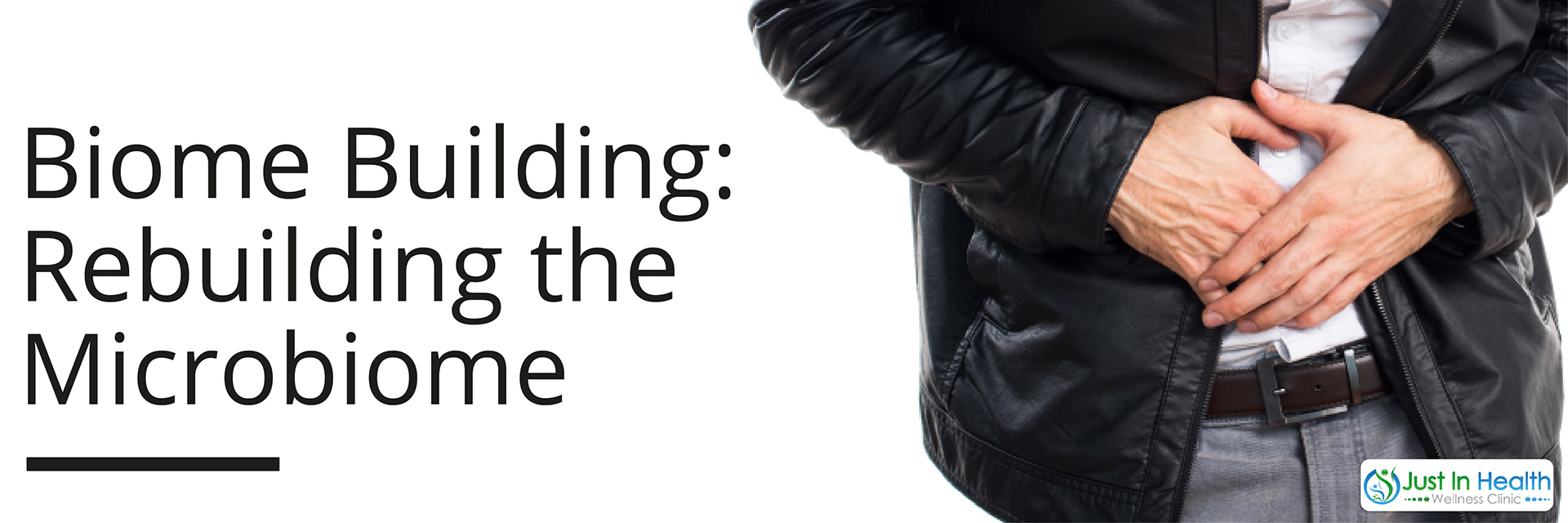
Have you ever felt butterflies in your stomach when you're feeling nervous? Have you ever felt a sense of dread, like your stomach’s dropping, when receiving bad news? Ever had a “gut feeling” about a person? This is because the human body has a “second brain” that we are just starting to learn about. This second brain’s location? The gut.
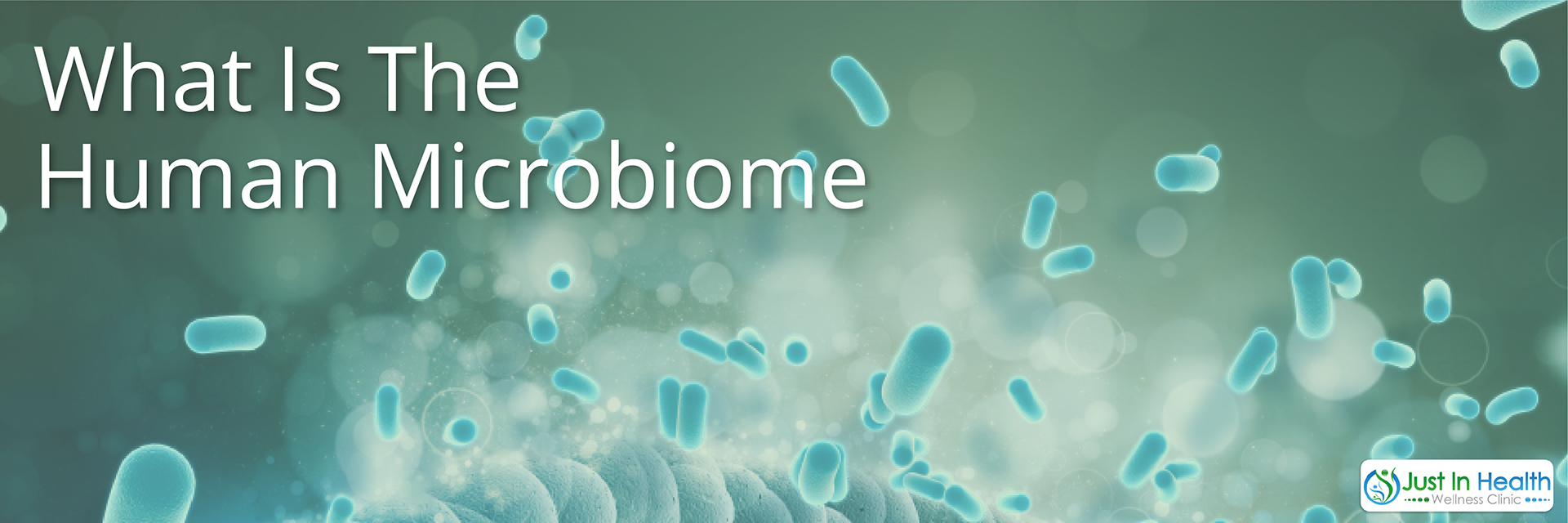
The 2-pound community of microbes living in and on our bodies is called the microbiome. These microbes seriously outnumber our human cells; we have about 10x as many outside organisms within our bodies than we do human cells.
The vast majority of our microbiome is located in our digestive systems, which is where we also find our second brain. Or more scientifically, the enteric nervous system. There are neurons embedded in the walls of our gut, which measures nine meters from esophagus to anus.
Scientists have discovered that ~90% of the fibers in the vagus nerve carry information from the gut to the brain, and not from the brain downwards! Breakthroughs in science are being made on how the trillions of bacteria in our gut— the microbiome— communicate with the neurons in our gut lining.
The microbiome is responsible for more than you might realize. From controlling how many calories you extract from food and causing cravings, to impacting our mood and whether we suffer from allergies. If we learn how to get our gut bacteria in check, we can use this to our advantage to control how fast our metabolism works, boost our energy, prevent disease (up to 90% of all diseases can be traced back to the gut/microbiome), and extract more nutrients from our food.
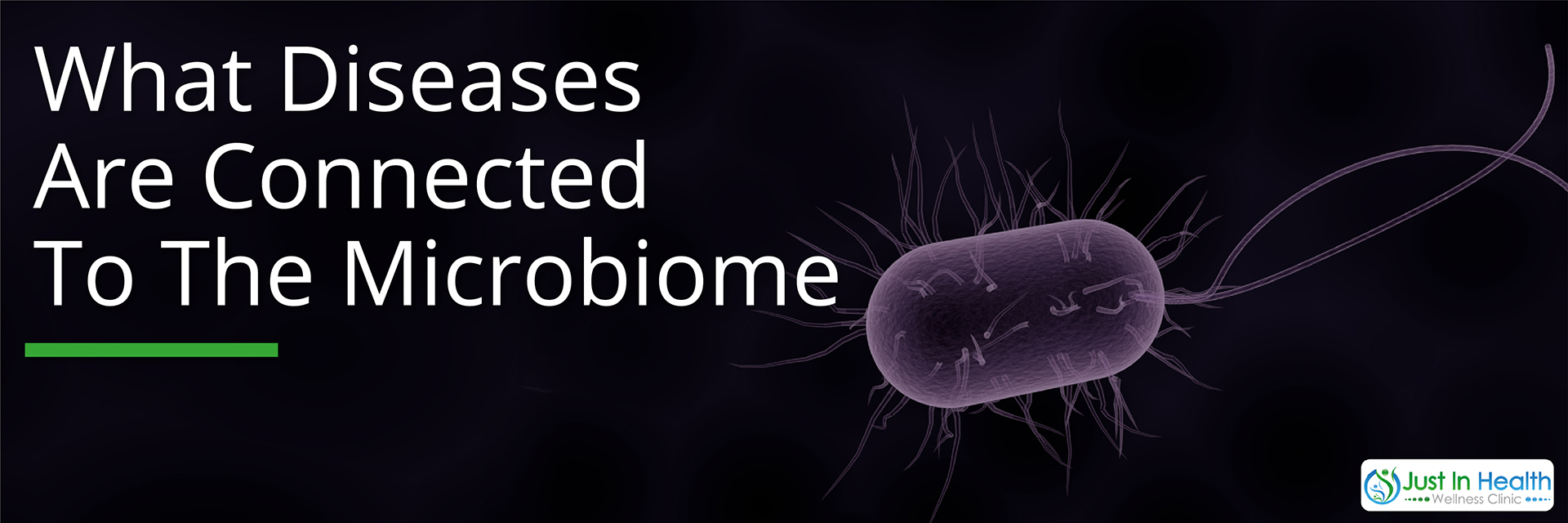
Your gut houses 70% of your immune system. If you don’t have a healthy gut balance, your immune system will be severely affected. To read in depth about the three main types of bacteria that determine the health of the gut: beneficial, commensal, and pathogenic, check out our article on gut bacteria.
Poor gut health is tied to many health concerns and diseases. Autoimmune diseases such as arthritis and IBS, cognitive decline (Alzheimer’s, dementia), asthma, allergies, autoimmunity, fatigue and brain fog, parasite infections, fungal overgrowth, infertility, type 1 diabetes, gluten sensitivity, mood disorders (anxiety, depression), learning disabilities (ADHD), and small intestinal bacterial overgrowth (SIBO), just to name a few.
Preliminary findings show that in our day and age, our microbiomes are becoming increasingly unbalanced due to the dietary shift towards processed foods (which contain all sorts of pesticides, artificial food additives, artificial sweeteners and food coloring, MSG, and unlabeled genetically engineered ingredients), more C-section deliveries (going through the birth canal exposes newborns to vital microorganisms which “seed” the gut), increased antibiotics use (whose stated purpose is to (negatively) affect microbial life- killing both the bad and the good).
As you can see, a healthy gut community is crucial to your health, but modern conveniences have limited diversity within our gut flora, negatively affecting our health. Luckily for us, there are many changes we can make to take control of our microbiome and nurture a healthy community within.
Click here to work with a functional medicine doctor to get your gut in great health!
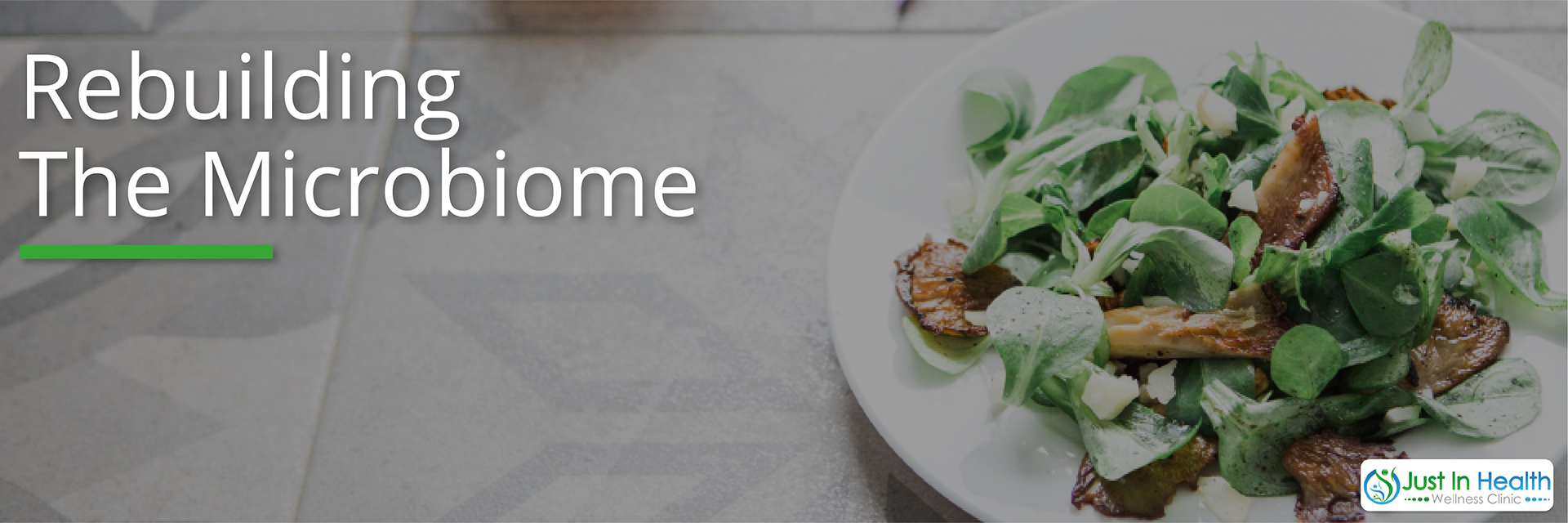
The Microbiome Diet: Eating to support immunity and lower inflammation:
It’s critical to lower inflammation and support gut health. An elimination diet (cutting out certain foods that irritate your body or that don’t promote your health) is a great way to go about supporting a healthy gut. Paleo and autoimmune diets are two great starting points. Clean meats, clean fats, non starchy vegetables, and low-sugar/low-glycemic fruits are safe choices.
Foods to eliminate are the common culprits of inflammation, digestion issues, and brain fog. These include sugars, nightshades, nuts/seeds, dairy, and eggs.
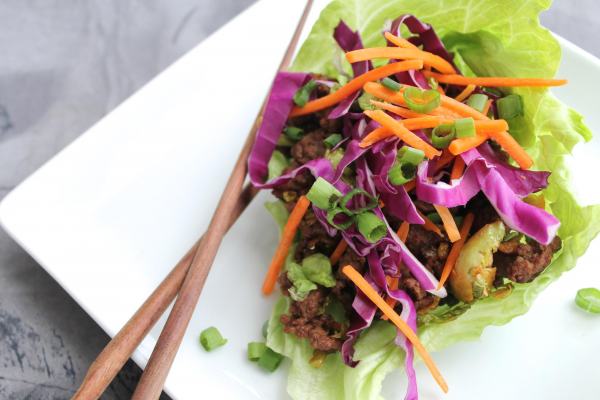
Start adding back foods after it’s been at least 4 weeks and your symptomatic improvement has plateaued for at least 1 week. The basic structure of food reintroduction is to start with one very small serving (one scoop, one teaspoon, etc.) and increase the serving size over that three- to four-day period, seeing if we can tolerate it. We want to start food reintroduction with eggs, then nuts and seeds, dairy next, then nightshades, and lastly FODMAPS (click here for Dr. J’s guide to FODMAP).
Watch Dr J’s video, where he talks more in depth about his food elimination diet recommendations: Autoimmune Elimination Diets Can Help Improve Leaky Gut and Inflammation.
Other ways to establish a strong microbiome:
Limit your sugar intake. Sugar feeds the bad bacteria in your gut. About one hundred years ago, each person was consuming an average of 3–4 pounds of sugar per year; now it’s about 150 pounds.
Get in your probiotics and prebiotics. Fermented foods such as sauerkraut and kimchi are great sources of probiotics, while dandelion greens and plantains offer plenty of prebiotics.
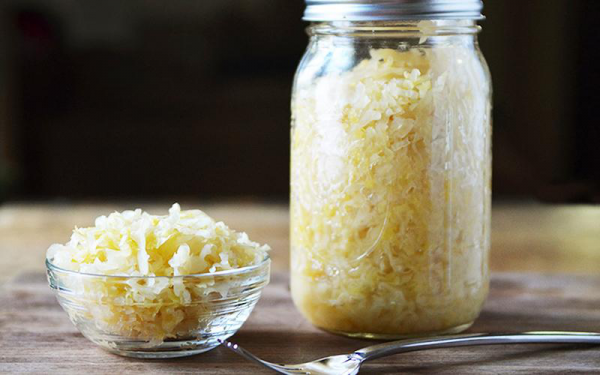
Drink bone broth. Bone broth supports a healthy gut lining and provides a cornucopia of vitamins and minerals for your bones, as well as collagen for your joints, skin, and hair.
Avoid antibiotics. Antibiotics don’t discriminate, they eliminate both bad and good gut bacteria, which leaves you with a defenseless immune system and at a higher risk for infections and inflammation.
Listen to your gut (and nurture it to optimal health!). Leaky gut allows foods and unwanted bacteria in the intestinal tract to slip into the bloodstream. This can put stress on the immune system and is the main cause of autoimmune disease for most people.
Get dirty! We evolved in the dirty outdoor world, and our modern disposition towards all that is sterile deprives us of a plethora of the microbes the world has to offer us! Backyard soil actually contains bacteria that can produce serotonin in our systems, acting as a natural antidepressant!
TAKEAWAY
Fostering a healthy microbiome comes naturally when we listen to our bodies and take care of ourselves. A clean diet and dirty lifestyle are two keys to success! Roll around with a dog in the dirt, pay attention to what foods work for you and which give you issues, and don’t be afraid to ask for help if you are unsure.

https://justinhealth.com/autoimmune-elimination-diets-can-help-improve-leaky-gut-and-inflammation/
https://www.scientificamerican.com/article/gut-feelings-the-second-brain-in-our-gastrointestinal-systems-excerpt/
https://www.drweil.com/health-wellness/body-mind-spirit/gastrointestinal/love-me-love-my-microbiome/
https://draxe.com/microbiome/
http://www.marksdailyapple.com/16-things-that-affect-your-gut-bacteria/
https://chriskresser.com/the-microbiota-and-bone-health-yet-another-reason-to-protect-your-gut/
https://chriskresser.com/do-gut-microbes-control-your-food-cravings/
http://drjockers.com/6-steps-to-rebuild-gut-flora-metabolism/
https://www.scientificamerican.com/article/gut-second-brain/
https://justinhealth.com/good-bad-gut-bacteria/
http://www.amnh.org/explore/science-topics/health-and-our-microbiome/meet-your-microbiome
http://www.paleoplan.com/2014/03-30/asian-ground-beef-veggie-lettuce-wraps/